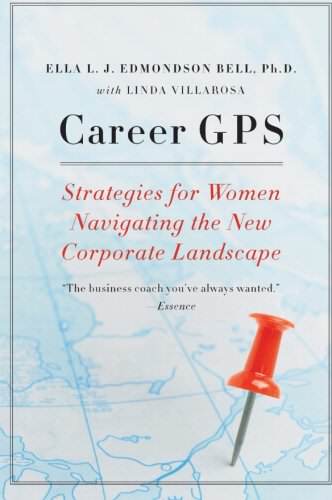Self-Knowledge Makes You a More Effective Entrepreneur
If you are going to be a real entrepreneur, it’s important that you know yourself well. After all, you won’t have a direct manager charged with giving you feedback, and your direct reports probably will be afraid to tell you what they really think.
In any case, your skills, talent, knowledge, personality, and strengths are your best assets as an entrepreneur. I’ve extracted many of the following points about knowing yourself from a book aimed at women professionals, called “Career GPS”, by Ella L. J. Edmondson Bell, Ph. D., but I see them applying equally well to every entrepreneur, man or woman. Let’s see what you think:
- Self-knowledge builds confidence. Know who you are and make sure you’re comfortable in your own skin. It will help you be a strong, effective leader. But don’t overdo it. We all know people who act supremely sure of themselves, but they are usually trying to hide some deep insecurities or fears.
- Self-awareness is one cornerstone of effective leadership. Leadership isn’t about how big your role is, or how big you act. Self-aware leaders are able to see the larger picture, the context, and purpose. They actively listen and don’t put themselves ahead of others. They allow others to be the best they can be.
- Being sure of who you are allows you to make sound business decisions. When you are running a startup, having a better sense of who you are and what you want can help you push away things that are not really important, and urge you to go after the things that are really in your heart.
- Knowing, accepting, and liking who you are encourages others to do the same. Being authentic and genuine makes you attractive to your customers, respected by your team, and effective as a leader. Individuality is the hallmark of a successful and strong entrepreneur.
- Understanding your wants and needs helps you say “no” when necessary. Startup businesses are very demanding. You’ll be expected to be present just about 24/7 while keeping everything else in your life managed. Knowing your limits – just how far you can stretch before you break – is an important skill.
- Know all of you – the good, the bad, and the ugly. No one, even the best of us, is all good. The good encompasses the parts of ourselves that are our natural gifts and treasures. The bad are those parts that need work. The ugly parts are generally hidden, especially from ourselves. Use the good, fix the bad, and learn to live with the ugly.
- Knowing yourself allows you to maximize performance. There’s more to being successful than working hard. You have to be able to create a winning business plan, cultivate relationships, and build your brand. Work smart and focus on results in everything you do. This will reduce stress and increase satisfaction.
When you understand how you work most effectively, you will do a better job of delegation, use of outsourcing, and selection of partners and employees. Figure out what you love to do, and what you can do well, then hire people to complement your abilities.
If you are by nature a big-picture person and have trouble with follow-through, then you need to find a detail task manager to fill in the gaps. On the other hand, if you get bogged down in systems details when you should be working on the long-term strategy, get yourself a mentor to keep you on the right path.
In fact, there has never been a better time or more opportunities for entrepreneurs. The recent economic disaster demands a transformation of business processes and cultures, beginning at the startup level. Now is the time to know yourself and believe in yourself – and use this power to win.

